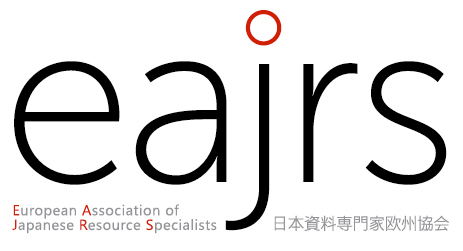The European Library of CEEJA, Colmar, Alsace (2024)
The Centre Européen d’études japonaises d’Alsace holds about 135,000, making it one of the biggest Japanese studies libraries in Europe. Its holdings are an aggregate of several components. The oldest comprises books from the former boarding school of Lycée Seijo d'Alsace. These were meant to serve as reference materials for the boarding schools pupils. They constitute a wealth of reference works, of encyclopaedias on a wide range of topics, as well as anthologies and collections of Japanese literature.
Several more donations were added. In 2020, Christiane Séguy donated her books on the Meiji period. The library also received a large collection of several hundred volumes from professor Hayami Akira related to economic and social history, and historical demography, and recently the personal library of Hidemura Senzô (1922-2021).
Although the various above-mentioned components are impressive, they are dwarfed by the personal library of Regine Mathias and Erich Pauer. Regine Mathias is a specialist in economic history of Japan, and Erich Pauer is an expert on the history of technology in in modern Japan. Although their library covers just about all major areas of Japanology, it is especially the studies and resource materials that are related to their respective fields of research that are extensive and rare among Japanese studies libraries in Europe.
I will introduce the richness and especially the specific characteristics of this library, I will give an overview of its constituent components, present its main sources, and highlight its strengths.
